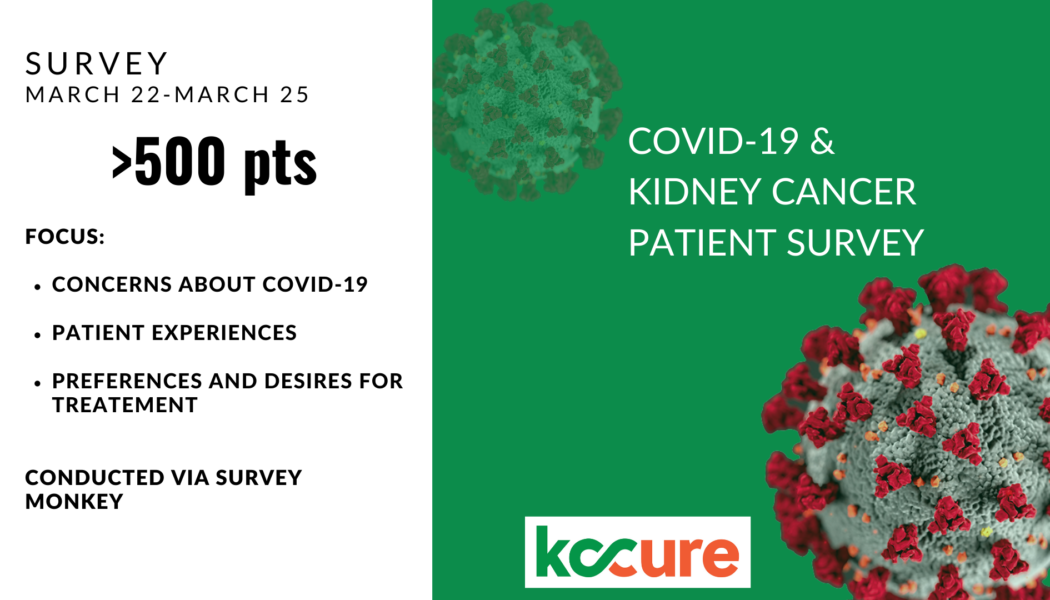COVID-19
COVID-19 Vaccine – Kidney Cancer Patient Survey
As a follow-up to our survey from March 2020, we sought to get updated views from our patient communities regarding concerns and anxieties related to the COVID-19 virus as well as to get additional thoughts about the vaccine roll-out. Similarly to our March survey, over 500 patients participated. Eighty-seven percent of patients were from the United States. People from 47 states participated. The only states not represented were Alaska, Hawaii and Vermont. Thirty-three percent of patients were receiving systemic therapy for metastatic disease or as adjuvant treatment. Nearly half of the patients receiving systemic therapy were on some type of immunotherapy treatment. Patient views related to their risk of acquiring COVID-19 went down slightly from 71 percent in March 2020 to 63 percent in ...
COVID-19/Kidney Cancer Patient Survey
In the wake of the COVID-19 outbreak, governments and hospitals systems are struggling to determine how to continue to provide care when resources are seriously compromised. KCCure ran a patient survey from March 22 to March 25, asking patients to share their experiences, anxieties and concerns about managing their cancer diagnosis during the pandemic. Over 500 patients responded to the survey. We heard from more women than men, with a breakdown of 60 percent to 40 percent. Ages ranged from 24 to 87, with a median age of 55. People from 48 states participated, the only states not represented were Hawaii and Vermont. Although 70 percent of people responding felt that they were at high risk concerning COVID-19, patients expressed significant concern about losing access to treatment for their...
COVID-19 Update – Kidney Cancer Drug Supply
As the COVID-19 crisis has unfolded, kidney cancer patients have been impacted in many ways. Many patients have expressed concerns about kidney cancer drug supply issues as a result of the pandemic. Below are statements from companies producing the most widely used treatments for advanced RCC. At this time, all information indicates that supply lines for kidney cancer treatments remain intact. We hope this provides additional reassurance. Bristol Myers Squibb (BMS): Opdivo and Yervoy We are taking appropriate measures to ensure our patients continue to have access to our medicines. As part of our normal course of business, we have continuity plans in place to account for possible scenarios relating to our products or facilities. We are diligently monitoring manufacturing and supply fa...
COVID-19 Update – Elective Surgery
As the COVID-19 crisis has unfolded, hospitals around the country are announcing delays, and in some cases, even banning “elective surgeries.” The Centers for Medicaid and Medicare Services (CMS) has released guidance for hospitals on limitations for these procedures to preserve resources during the COVID-19 pandemic. What is elective surgery? Many patients are surprised to learn that most surgeries for kidney cancer fall under the category of elective surgery. The term “elective” is distressing to cancer patients as it suggests that surgery to remove a tumor is a choice, similar to a cosmetic procedure. While the name “elective” might imply that this type of surgery is optional, that is not always the case. An elective procedure is simply one that is planned i...




